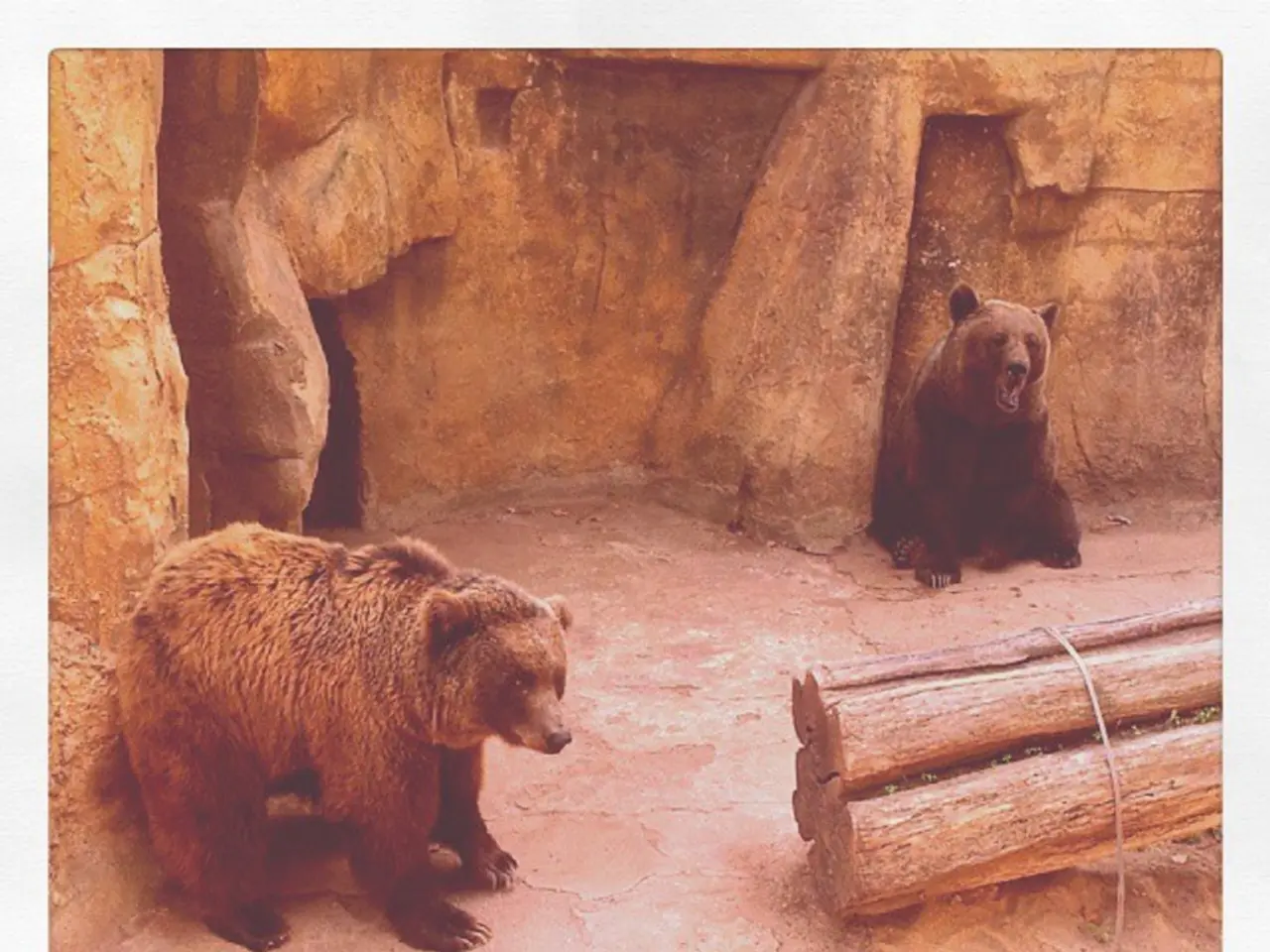Hypothetical Head-to-Head Showdown: Lion vs. Bear, Exploring the落合pected Outcomes
In the realm of nature, few topics capture the imagination quite like a hypothetical fight between a bear and a lion. Both animals are apex predators, ruling their respective domains with fearsome efficiency, but their differences in size, physical power, behavior, and regional impact make for an intriguing comparison.
When it comes to size, bears, particularly grizzly or brown bears, have a significant advantage. Adult males typically weigh between 300 and 1,000 pounds, standing up to 8 feet tall when on their hind legs. African lions, on the other hand, usually weigh between 330 and 500 pounds, with a shoulder height of about 4 feet and a body length (excluding tail) of up to 8 feet.
In terms of physical power, bears are renowned for their tremendous strength, capable of delivering powerful swipes with their forelimbs and boasting strong, muscular bodies. Their endurance is remarkable, allowing them to fight for extended periods. Lions, however, are built for explosive strength, with strong jaws designed for suffocating prey and powerful claws for gripping. They rely on bursts of speed and agility to bring down opponents.
Behaviorally, bears are often more defensive, using their size and strength to intimidate or overpower threats. They are capable of prolonged fights, wearing down opponents. Lions, on the other hand, are more aggressive in hunting, using ambush tactics and teamwork to take down prey. In a one-on-one scenario, a lion would likely attempt a quick kill.
Regionally, bears are dominant in forested and mountainous regions, found in North America, Europe, and parts of Asia. They have no natural predators except humans. Lions, native to Africa (and historically parts of Asia), dominate savannas and grasslands. They face competition from other large predators but are apex predators in their range.
In a direct confrontation, most experts agree that a grizzly or brown bear would have the upper hand due to its greater size, strength, and endurance. The lion's speed and agility might give it an initial advantage, but the bear's robust build and ability to sustain a prolonged fight would likely prevail. There is consensus that a lion would struggle to overpower or strangle a bear, especially given the bear's ability to stand up and shake off attacks.
In summary, while lions excel in speed, agility, and kill-zone accuracy, bears have the edge in terms of sheer size, strength, and endurance. This makes a bear the likely winner in a direct one-on-one fight. However, it's important to remember that such a confrontation would be extremely rare in nature, as both animals occupy distinct habitats and have different ecological roles.
References:
1. [Bear vs. Lion: Who Would Win?](https://www.livescience.com/32643-bear-vs-lion-who-would-win.html) 2. [Bear vs. Lion: The Ultimate Showdown](https://www.nationalgeographic.com/animals/article/bear-vs-lion) 3. [Bear vs. Lion: The Great Debate](https://www.bbc.com/earth/story/20170411-bear-vs-lion-the-great-debate) 4. [Bear vs. Lion: A Comparative Analysis](https://www.researchgate.net/publication/323457961_Bear_vs_Lion_A_Comparative_Analysis)
In the intriguing discourse of combining different domains, comparisons can extend beyond the animal kingdom. For instance, technology, being agile and swift, could outmaneuver culture in terms of immediate impact, yet culture's enduring legacy may prevail when it comes to longer-term influence on the environment.
However, when we talk about sports, speculations about competitive advantages or disadvantages might seem less important. Instead, the focus lies on collaboration, camaraderie, and the shared reverence for the spirit of sport – traits that both animals and humans can appreciate and respect.





